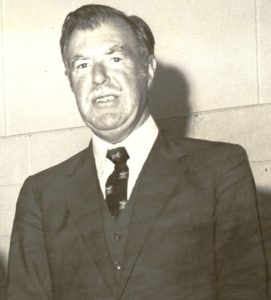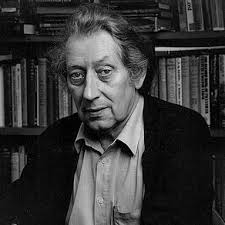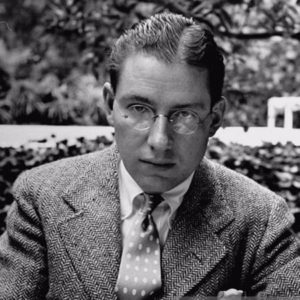We have decided to create the most comprehensive English Summary that will help students with learning and understanding.
Animal Farm Chapter 8 Summary
After the executions, the animals question (away from the pigs and dogs) whether these events fall in line with the Seven Commandments; they think they remember, Sixth Commandment stating that, No animal shall kill another animal’. Clover asked Muriel to read to her the Six Commandment. It read, “No animal should kill other animal without cause”. Somehow, the last two words were not in their memory. Like the previous case, another commandment had been altered and the animals thought that the killings were justified.
The general conditions of the animals continue to be harsh, as the workload of rebuilding the windmill and regular form of duties require additional effort. Although, the animals believe that they are getting no more food than they did under Mr. Jones, Squealer presents weekly numbers that seem to prove they are actually getting more food and are .better off. At this point, Squealer is doing most of Napoleon’s public speaking. Napoleon has isolated himself in the farmhouse, away from even the other pigs, and rarely appears in public.
When three hens confess to plotting to assassinate Napoleon in summer, he becomes even more isolated, adds more guard dogs, and gets a food taster. The four dogs guarded his bed at night and a pig, Pinkeye, was given the task to taste his food lest it should be poisoned. The hens were executed. The pigs circulated poems and songs praising Napoleon as the saviour and protector of all the animals.
The pile of timber remained still unsold though negotiations were on. Frederick was more anxious to get hold of it but never offered a reasonable price. Then there were also stories of him plotting an attack against the Animal Farm. Snowball was also rumoured to be in his farm. Napoleon made arrangements to sell the pile of timber to Pilkington and he was to enter in a regular agreement of trade between Animal Farm and Foxwood. Windmill was nearing its completion and with it the rumours of impending attacks were also coming.
There were many stories like, Frederick bribing the officials to get away with the law and torturing animals in his farm.After all of these rumours and stories, the animals were shocked to learn that Napoleon had sold the timber to Frederick and had been negotiating with Frederick in secret all along. He spread the stories about selling to Pilkington only to get Frederick to meet his price. The rumours about Frederick’s farm likely came from Snowball, who apparently is actually hiding on Pilkington’s farm. Once they hear the whole story, the animals are proud of Napoleon’s negotiating powers and were also impressed that he is savvy enough to demand cash payment instead of cheque.
With the windmill finished and the timber sold, the machinery for the windmill can be purchased, and all their dreams come true. However, three days after the sale, Mr. Whymper tells Napoleon that Frederick’s money has been counterfeited and he has cheated them all. Napoleon pronounces a death sentence to Frederick and prepares for an attack the next morning. The animals are outmatched and men have guns.
The animals send a message to Pilkington, who refuses to help. The battle culminates when Frederick and his men blow up the finished windmill. The animals, who have retreated, are outraged by this act and counter attack vigorously, suffering casualties but driving the humans from the farm. The pigs declare a victory and hold a ceremony celebrating what they call, “the battle of the windmill”.
The animals, however, are crushed by the loss of the windmill and don’t understand why the pigs want to celebrate? Squealer convinces them that the battle is a triumph because the animals held on to the farm, but they are not fully convinced until Napoleon speaks to them. The fallen animals are given a funeral, and the rest of the animals receive extra rations.
A few days after the battle, the pigs discover whisky in the farmhouse and drink it. That night many surprising sounds came from the farm house. The pigs were drunk ! However, the morning brought bad news with it. Squealer, who was not his usual self, announced that Napoleon was dying. The atmosphere at once grew grave. The rumour made its way that Snowball had eventually been successful in poisoning Napoleons’ food.
But his condition improved by evening and by next day he was back to work. It was learned that Whymper had been asked to buy booklets on brewing and distilling. A week later, Napoleon ordered that the grazing-ground for the retired animals would be ploughed up and soon it was realized that Napoleon wanted to sow it with barley. One night, at about twelve O’clock, there was a loud crash in the yard. All animals rushed to the spot. At the foot of the fall, upon which the Seven Commandment were written, lay a broken ladder and near it, Squealer in deep pain. There was a paint – brush and a pot of white paint also.
The dogs escorted him back to the farmhouse. Benjamin seemed to understand everything but would say nothing. Muriel, after a few days, noticed that there was another commandment that the animals had remembered wrong. The Fifth Commandment did not read “No animal shall drink alcohol” as she had thought, but instead it read “No animal shall drink alcohol to excess.”
Animal Farm Chapter 8 Summary Word Meanings:
- Meddle – Interfere in something that is not one’s concern.
- Cockerel – A young domestic cock.
- Skulking – Keep out of sight, typically with a cowardly motive
- Clamoured – Shout loudly and insistently
- Gander – A male goose
- Conciliatory – Intended or likely to pacify.
- Pellets – A small, rounded, compressed mass of a substance.
- Contrived – Deliberately created rather than arising naturally or spontaneously.
- Muzzle – The projecting part of the face, including the nose and mouth, of an animal such as a dog or horse
- Browing – Make beer by soaking boiling and fermentation
Animal Farm Chapter 8 Summary Question and Answer
Question 1.
Read the extract given below and answer the questions that follow.
A cry of lamentation went up. Straw was laid down outside the doors of the farmhouse, and the animals walked on tiptoe. With tears in their eyes they asked one another what they should do if their Leader was taken away from them.
(i) Where is the current scene set ? Who is the Leader mentioned here ?
(ii) What was the rumour behind the Leader’s current state ?
(iii) What was the reality behind the Leader’s current state ?
(iv) How did the animals react to the current state of their Leader ?
(v) Did the Leader come out of this situation?
Answer:
(i) The current scene is set in the Animal Farm. The animals were going into the farmhouse which was initially occupied by Mr. Jones. Now they were going in to see Napoleon, their Leader, who was living in the farm house.
(ii) The rumour behind Napoleon’s current state was that he was dying. Stories were circulated that Snowball had after all contrived to introduce poison into Napoleon’s food.
(iii) Squealer had announced that Comrade Napoleon was dying. Actually that was not the case. The pigs had got their hands on whisky in one of the cellars of the farmhouse. Napoleon was not dying, he was drunk.
(iv) The animals of the farm were totally taken aback after hearing that their Leader, Comrade Napoleon, was dying. With tears in their eyes they asked one another what would they do if their Leader was taken away from them.
(v) Yes, after the effects of whisky wore off, Napoleon started to get better. By evening, however, Napoleon appeared to be somewhat better, and the following morning Squealer was able to tell them that he was well on the way to recovery. By the evening of that day, Napoleon was back to work, aind on that day it was learned that he had instructed Whymper to purchase in Willingdon some booklets on brewing and distilling.
Question 2.
Read the extract given below and answer the questions that follow.
About this time there occurred a strange incident which hardly anyone was able to understand. One night at about twelve o’clock, there was a loud crash in the yard, and the animals rushed out of their stalls.
(i) Why had the loud crash happened ?
(ii) What had happened to the Seven Commandments ?
(iii) How did Squealer behave after this incident ?
(iv) How did the other animals behave after this incident ?
(v) Which other Commandments had been changed ?
Answer:
(i) The loud crash had happened as Squealer had fallen off after the ladder he was using, broke into two. He was also carrying a paint brush and white paint with him.
(ii) Later, when Clover noticed the Seven Commandments, she thought that something was amiss. She was not able to read the Commandments, and, thus took Muriel’s help. Muriel told her that the Fifth Commandment now read ‘No animal shall drink alcohol to excess.’
(iii) Squealer, temporarily stunned, was sprawling beside it, and near at hand there lay a lantern, a paintbrush, and an overtured pot of white paint. The dogs immediately made a ring around Squealer, and escorted him back to the farmhouse as soon as he was able to walk.
(iv) The animals saw Squealer lying near the Seven Commandments with a broken ladder, a paint brush and some white paint. Then they saw the dogs escorting him. None of the animals could form any idea as to what this meant, except old Benjamin, who nodded his muzzle with a knowing air, and seemed to understand, but would say nothing.
(v) Since Snowball had been overthrown by Napoleon, many of the Commandments saw some minute changes over time. The Fourth Commandment ‘No animal shall sleep in a bed, was changed to ‘No animal shall sleep in a bed with sheets’. The Fifth Commandment was, ‘No animal shall drink alcohol’, but it was changed to “No animal shall drink alcohol to excess’. The Sixth Commandment was changed from “No animal shall kill any other animal’ to ‘No animal shall kill any other animal without cause.’ Finally, none of the original Commandments were left. There was only one Commandment that remained. It was ‘All animals are equal but some animals are more equal than others’.


